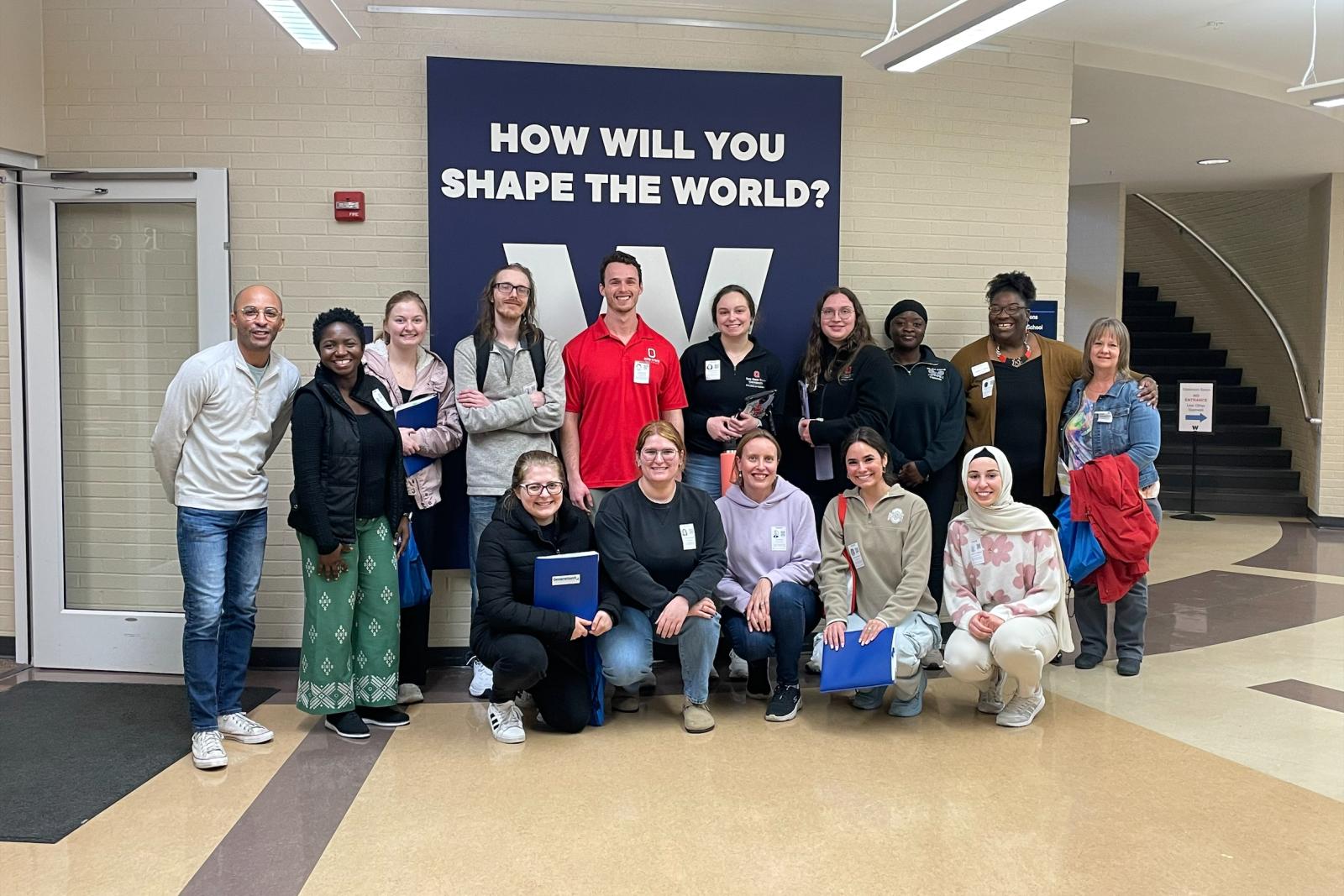Generation Rx brings medication safety to Wellington School

This spring, students at the Wellington School in Upper Arlington, Ohio, just miles from The Ohio State University campus, received a crash course in medication safety.
The introduction of a drug safety curriculum at the Wellington School began when parents voiced their interest in bringing community experts into the classroom.
Justin Newby, a counselor for students in grades K-4, learned about Generation Rx’s educational programming and reached out for help at the start of 2024.
“As I was researching potential partners, it was clear that Generation Rx had plenty of experience and community backing,” Newby said. “I’m so glad I found them.”
The Ohio State College of Pharmacy launched Generation Rx in 2007 as its medication safety outreach program, providing resources and toolkits to groups of all ages and backgrounds. Although the group has been delivering instruction across age groups for years, Newby’s student population presented a new and exciting opportunity.
Much of the organization’s outreach efforts with K-12 populations had occurred at community events outside of traditional classroom settings, and with fairly balanced numbers of educators and students present.
Not only would the Generation Rx team adjust programming to meet the needs of students in a classroom setting at Wellington, but they had the chance to successfully execute the curriculum for an audience of 300.
The opportunity to deliver relevant and age-appropriate programming to students was a wonderful fit for the organization and Generation Rx Program Manager Cynthia Sloan was ready to make it happen.
“Because prescription and over-the-counter medicines are typically accessible and visible in our homes, we believe children should understand medication safety at an early age,” said Generation Rx Assistant Director and Assistant Professor Molly Downing. “Though we face unique challenges when bringing any health or science programming to K-5 students, Cynthia has done an amazing job at accommodating the children’s needs.”
To accommodate the shorter attention spans, Generation Rx’s programming involved hands-on work and short, focused learning experiences. Activities that they brought to the classroom included comparing candy and medications and identifying trusted adults. Generation Rx also offered student medication safety badges for applying their new knowledge to real-world situations.
Recognizing a meaningful service learning opportunity, Sloan also recruited undergraduate and professional pharmacy students to deliver the material.
“It’s important for our facilitators to limit their use of clinical or scientific jargon and speak with excitement and enthusiasm,” Dr. Downing said. “By engaging our students as facilitators, this program has provided a wonderful opportunity for them to practice delivering these messages in a simple manner that anyone can understand.,”
Programming was largely supported and made possible by these students, with about eight leading each classroom program.
“One of the highlights for me was seeing the Ohio State students interact with the kids,” Newby said. “The pharmacy students often came in nervous but quickly found ways to get down to the kids' levels and get them involved. Cynthia and her students found a genuine way to answer any random questions that the kids had.”
Though the programming was limited to three days at the Wellington School with grades k-4, Newby and the Generation Rx team are enthusiastic to expand the collaboration in the future.
Newby noted that he was able to keep parents updated on what their students were learning in the classroom by sharing the resources provided by Generation Rx. In the future, he’s hoping to expand the education to parents by refreshing their own medication safety knowledge.
“Generation Rx helps communities teach medication safety to people of all ages,” said co-founder and former director Nicole Kwiek, PhD. “It’s important to reach people where they live and work and to discuss topics that are relevant to their stages of life.”